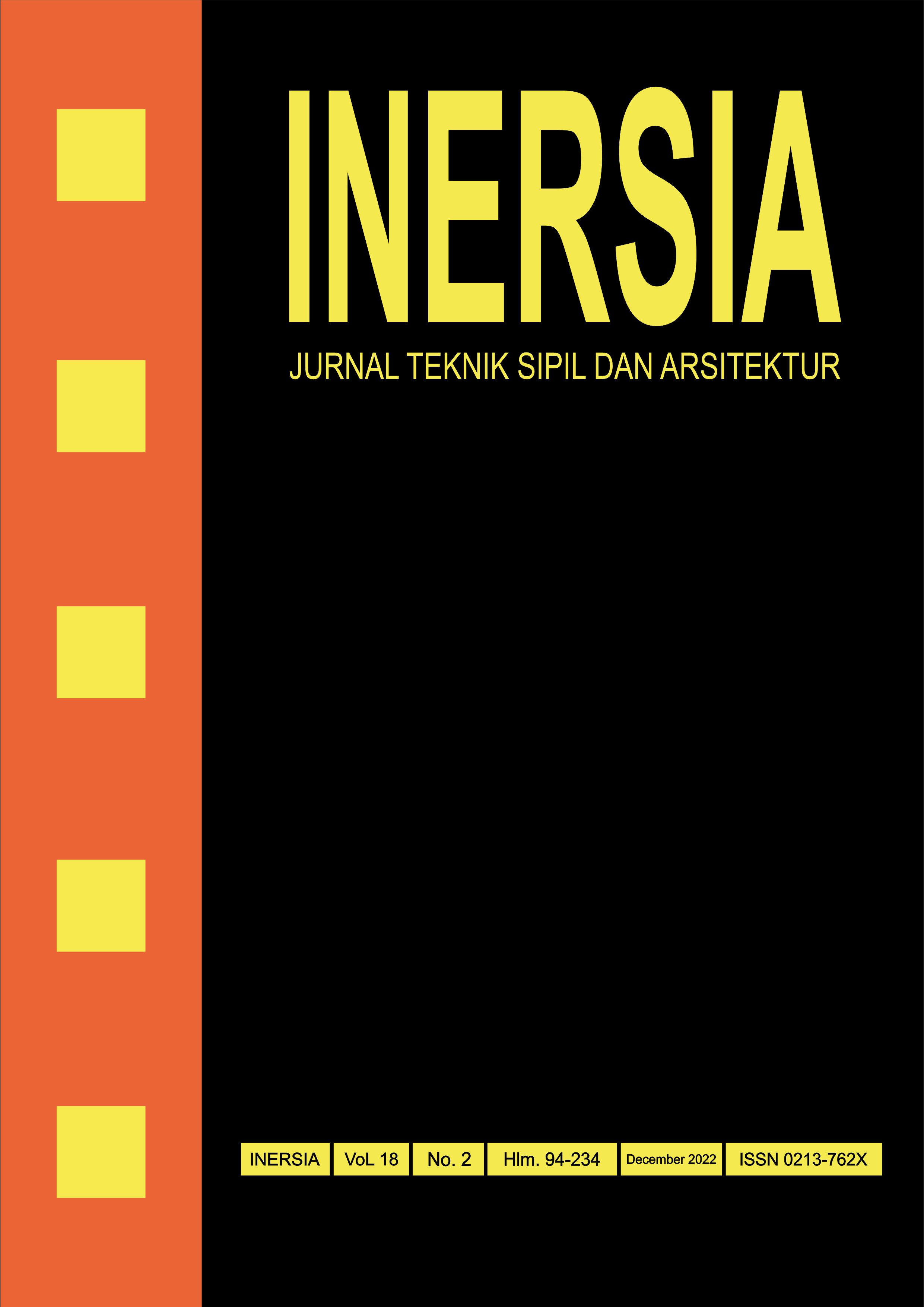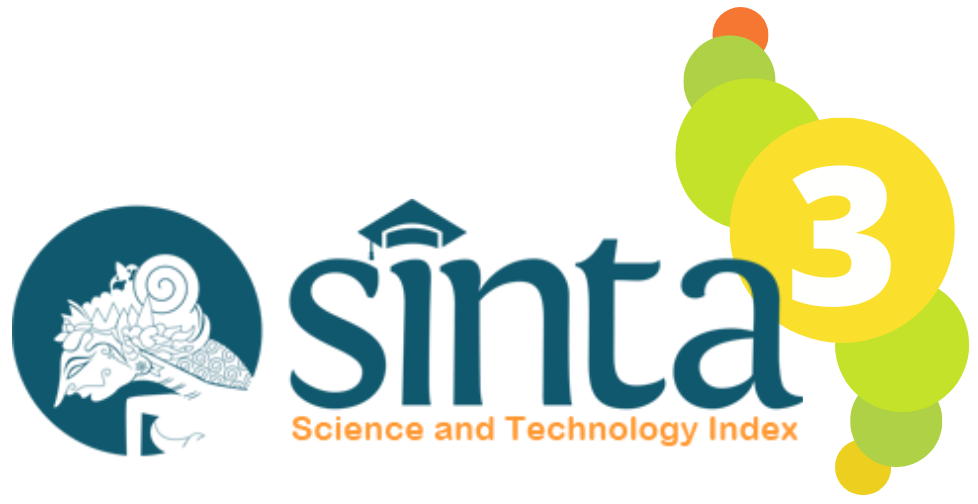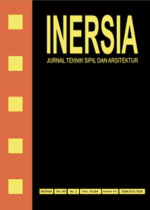The Influence of Resident's Income Level on Rusunawa Perceptions of Satisfaction, Convenience, and Management
DOI:
https://doi.org/10.21831/inersia.v18i2.49245Keywords:
Resident Satisfaction, Resident Convenience, Flats managementAbstract
The increasing population growth rate causes a city to face the problem of limited land for residential development. Housing is a fundamental demand of the community that must be fulfilled, especially for low-income people. Through the construction of flats named Rusunawa, the government tries to fulfill the demand for decent housing and anticipates the emergence of slum settlements. In its development, there are Rusunawa whose management is not optimal in maintenance which results in unkempt conditions and causes residents to not get satisfaction and convenience in occupying housing. This study aims to analyze the level of satisfaction, the convenience of residents, and the management of Rusunawa. It is based on the income level of residents and identifies strategies for service improvement of Rusunawa management. This study uses primary data to obtain the level of satisfaction, comfort, and management of flats based on income levels. The data collected is preliminary data consisting of data from questionnaires to the residents of the apartments and data from interviews with the Rusunawa management agency. The method in this study uses a mixed method based on qualitative methods with interview techniques and quantitative methods with survey techniques (questionnaires). The results show that there is a significant difference in the level of building convenience based on the income level of the residents of the Rusunawa. The management of the Rusunawa has not reached its maximum goals related to implementing the Rusunawa regulation. Runaway development programs are required, such as providing counseling, participating in social activities regarding environmental care, and conducting socialization with residents, especially the priority aspects of unique flats for low-income communities.
References
Menteri Negara Perumahan Rakyat, Peraturan Menteri Negara Perumahan Rakyat Nomor: 14 /Permen/M/2007 tentang Pengelolaan Rumah Susun Sederhana Sewa. Indonesia, 2007, pp. 1–50.
Y. Supriyatna, "Estimasi Biaya Pemeliharaan Bangunan Gedung," Maj. Ilm. UNIKOM, vol. 9, no. 2, pp. 199–206, 2011, [Online]. Available: https://gedung.info/wp-content/uploads/2017/11/Panduan-Estimasi-Biaya-Perawatan-Gedung.pdf.
A. A. Oladapo, "A study of tenants' maintenance awareness, responsibility and satisfaction in institutional housing in Nigeria," Int. J. Strateg. Prop. Manag., vol. 10, no. 4, pp. 217–231, 2006, doi: 10.1080/1648715X.2006.9637554.
N. A. Rahma, A. Hardiana, and P. Rahayu, "Pemilihan Lokasi Rumah Susun Sederhana Sewa: Studi Kasus Rusunawa Putri Cempo, Surakarta," Desa-Kota, vol. 2, no. 2, p. 158, 2020, doi: 10.20961/desa-kota.v2i2.34404.158-174.
Y. I. Mawardi, R. Wulandari, G. K. W. Istiqomah, R. L. Susila, and A. I. Hendriavi, "Analisis Kualitas Layanan Rumah Susun Sederhana Sewa (Rusunawa) Semeru dengan Menggunakan Metode Importance Performance Analysis (IPA)," Matrap. J. Perenc. Wil. dan Kota, vol. 1, no. 1, p. 1, 2020, doi: 10.19184/matrapolis.v1i1.19218.
Badan Pusat Statistik Kabupaten Cilacap, "Penduduk dan Pertumbuhan," 2019. cilacapkab.bps.go.id.
W. Prasojo, D. Frida DBPMPd, K. Kunci, K. penghuni, K. Bangunan, and R. Dupak Bangunrejo dan Sombo Surabaya, "Analisis Tingkat Kepuasan Penghuni Pada Hunian Rumah Susun Ditinjau Terhadap Kualitas Bangunan Di Wilayah Surabaya," Rekayasa Tek. Sipil, vol. 3, pp. 54–62, 2014.
Presiden Republik Indonesia and Dewan Perwakilan Rakyat Republik Indonesia, Undang-Undang Republik Indonesia tentang Rumah Susun. 2011, pp. 1–48.
A. R. Belkaoui, Teori Akuntansi (Accounting Theory) Buku 1, 5th ed. Jakarta: Salemba Empat, 2011.
Badan Pusat Statistik Kabupaten Cilacap, BADAN PUSAT STATISTIK KABUPATEN CILACAP BPS-STATISTICS OF CILACAP REGENCY KABUPATEN CILACAP dALAm ANgKA. Cilacap: Badan Pusat Statistik Kabupaten Cilacap, 2021.
H. A. Setiadi, "Analisis Faktor Berpengaruh terhadap Kepuasan Penghuni Rumah Susun Sewa Studi Kasus Rumah Susun Sewa Kemayoran," J. Permukim., vol. 10, no. 1, pp. 19–36, 2015.
D. E. Paris and R. Kangari, "Multifamily affordable housing: Residential satisfaction.," J. Perform. Constr. Facil., vol. 19, no. 2, pp. 138–145, 2005.
M. Greene and J. de D. Ortúzar, "Willingness to pay for social housing attributes: a case study from Chile," Int. Plan. Stud., vol. 7, no. 1, pp. 55–87, 2002.
R. N. James III, "Multifamily housing characteristics and tenant satisfaction," J. Perform. Constr. Facil., vol. 21, no. 6, pp. 472–480, 2007.
Presiden Republik Indonesia and Dewan Perwakilan Rakyat Republik Indonesia, Undang-Undang Republik Indonesia Nomor 28 Tahun 2002 tentang Bangunan Gedung. Indonesia, 2002, pp. 1–41.
S. M. Anugerah Septiaman Harefa, Polin Naibaho, ST.MT, Anna Lucy Rahmawati, "Persepsi Penghuni Terhadap Kenyamanan Beraktivitas Di Ruang Terbuka Perumahan," J. Semin. Arsit., no. Kenyamanan Beraktivitas Di Ruang Terbuka, pp. 37–46, 2018.
J. W. Creswell, Research design pendekatan kualitatif, kuantitatif, dan mixed. Yogyakarta: Pustaka Pelajar, 2010.
Sugiyono, Metode Penelitian Kuantitatif, Kualitatif, dan Kombinasi. Bandung: Alfabeta, 2011.
R. H. Waterman, T. J. Peters, and J. R. Phillips, "Structure is not organization," Bus. Horiz., vol. 23, no. 3, pp. 14–26, 1980, doi: 10.1016/0007-6813(80)90027-0.
Bupati Cilacap, Retribusi Pemakaian Kekayaan Daerah di Kabupaten Cilacap. Indonesia, 2012.
Bupati Cilacap, Pembentukan, Kedudukan, Susunan Organisasi, dan Tata Kerja Unit Pelaksana Teknis Daerah Dinas Pekerjaan Umum dan Penataan Ruang Kabupaten Cilacap. 2018.
Presiden Republik Indonesia, Disiplin Pegawai Negeri Sipil. Indonesia, 2010, pp. 1–95.
S. P. Siagian, Teori Motivasi dan Aplikasinya, 4th ed. Jakarta: Rineka Cipta, 2012.
S. P. Robbins and A. J. Timothy, Perilaku Organisasi (Organizational Behavior), 12th ed. Jakarta: Salemba Empat, 2009.
R. Ernawati, "Faktor yang Mempengaruhi Kepuasan Tinggal pada Rusunawa di Kota Surabaya," EMARA Indones. J. Archit., vol. 5, no. 1, pp. 24–31, 2019, doi: 10.29080/eija.v5i1.527.
F. -, "Hubungan Karakteristik Sosial Ekonomi dengan Tingkat Kepuasan Bermukim Pemilik Rumah Sederhana di Perumahan Tamansari Bukit Mutiara Kota Balikpapan," J. Pembang. Wil. Kota, vol. 10, no. 1, p. 33, 2014, doi: 10.14710/pwk.v10i1.7631.
J. Reimer and R. H. Paolitto, Diana Pritchard Hersh, Promoting moral growth: from Piaget to Kohlberg, 2nd ed. New York: Longman, 1983.
D. Zuchdi, Humanisasi Pendidikan. Jakarta: Bumi Aksara, 2010.
A. K. Sari, "Evaluasi teknis dan pengelolaan rumah susun sederhana sewa di kabupaten sleman yogyakarta," Racic Rab Constr. Res., vol. 1, no. 1, pp. 55–68, 2016.
Downloads
Published
How to Cite
Issue
Section
License
Authors who publish with INERSIA journal agree to the following terms:
- Authors retain copyright and grant the INERSIA journal right of first publication with the work simultaneously licensed under Creative Commons Attribution License (CC BY 4.0) that allows others to share the work with an acknowledgment of the work's authorship and initial publication in this journal.
- Authors can enter into separate, additional contractual arrangements for the non-exclusive distribution of the published version of the work (e.g., post it to an institutional repository or edit it in a book), with an acknowledgment of its initial publication in this journal.
- Authors are permitted and encouraged to post their work online (e.g., in institutional repositories or on their website) before and during the submission process, as it can lead to productive exchanges, as well as earlier and greater citation of published work.

INERSIA by https://journal.uny.ac.id/index.php/inersia was distributed under a Creative Commons Attribution 4.0 International License











